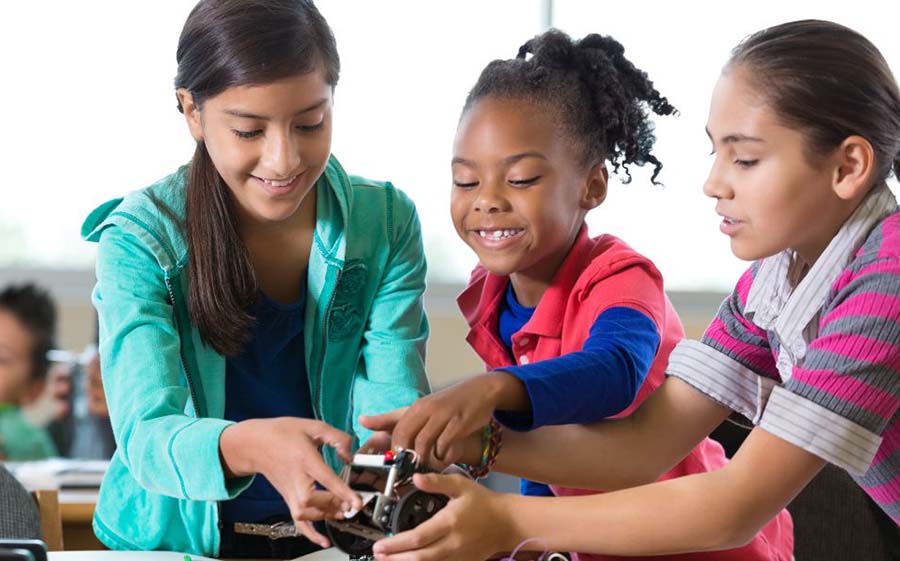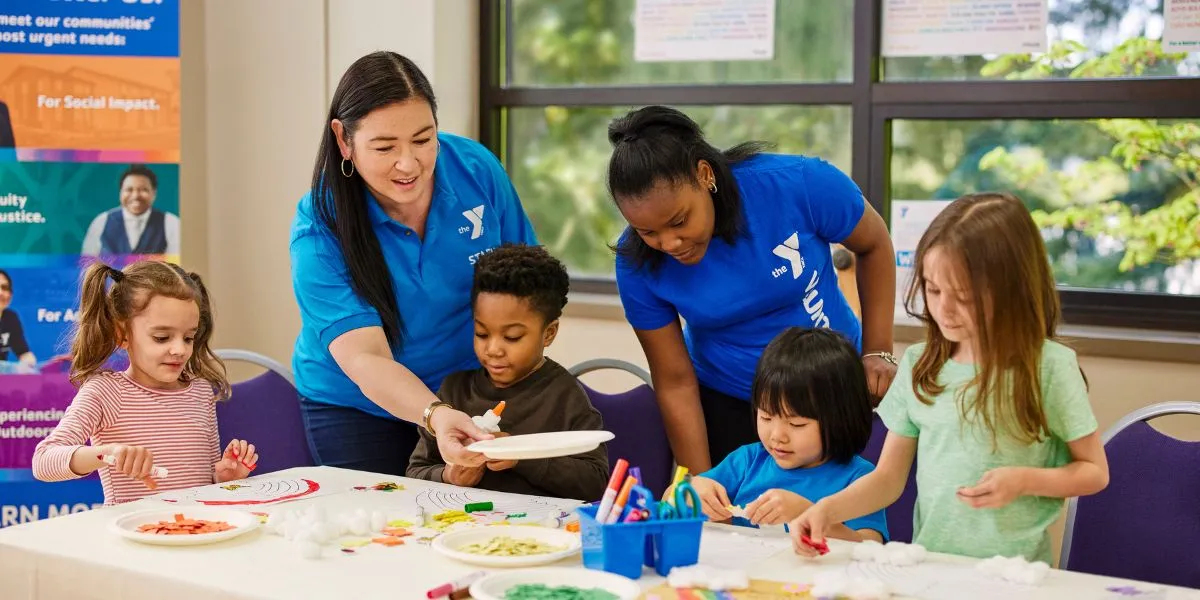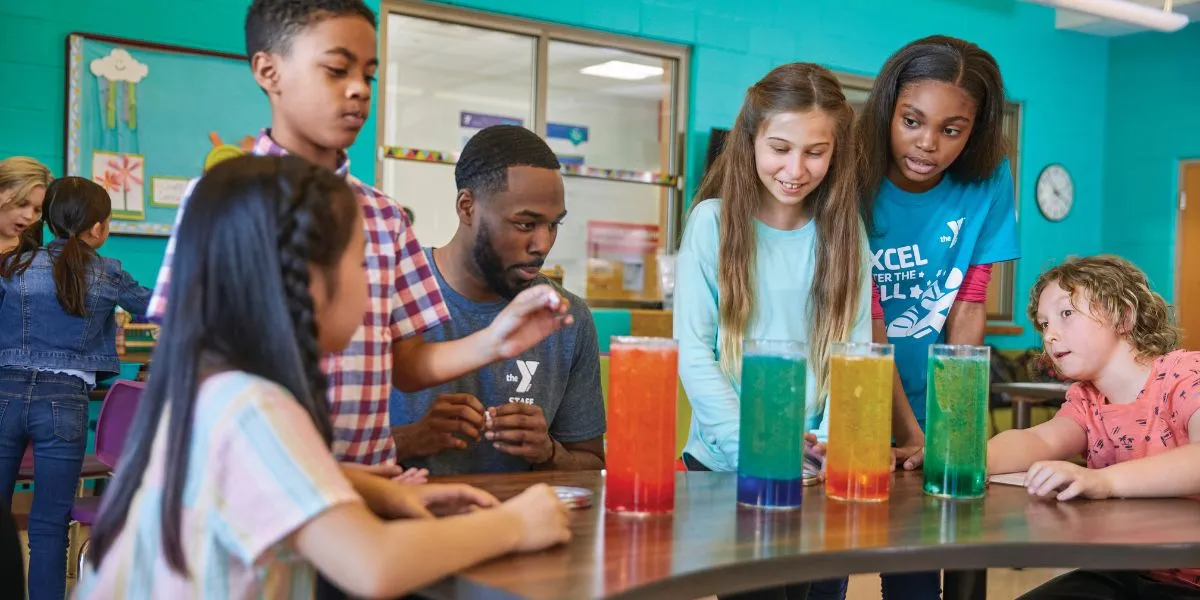
Published: 07/10/2025 - 9:00 AM
Many parents and guardians work in the hours before and after school, and they may not have reliable child care options. Both before and after school programs offer a safe, educational, and fun space for kids to complete homework, play games, and make friends, helping with the responsibility of child care for many families.
These supervised programs are integral in supporting communities and helping families balance school, work, and life. Below, you can learn more about what these programs are, how before and after school programs benefit students, and ways to choose the right program for your child.
What are Before and After School Programs?
Sometimes called an extended day or out-of-school time program, before and after school programs gives kids access to safe, supervised care before and after school hours. These programs may be hosted by the school itself or a separate local organization. While each program works similarly, kids may participate in different activities at either program.
The day starts with parents and guardians dropping their kids off at a designated location. If children only participate in the after-school program, then once school ends for the day, they'll go to that same location. There, the students participate in extended school lessons and games. Depending on the program's structure, a typical session usually involves a snack, homework time, free play, and enrichment activities, all led and supervised by trained staff.
After the program is over, the kids will attend school for the day or be picked up by a parent or guardian.
The Benefits of Out-of-School Time Programs for Students and Communities
There are numerous reasons why before and after school programs are important for students, their families, and the community as a whole.
1. Provides a Safe Space
In families where both parents or guardians work, child care is a top concern, especially because leaving children unattended after school ends can lead to various safety issues. If they exit school unsupervised without any plans, kids may engage in unsafe activities that put them at risk, impacting them now and later in life.
By participating in an out-of-school time program, students get access to a safe, welcoming environment that encourages positive behaviors and routines. There's no chance for misdirection or boredom — kids get to enjoy a few hours of structured learning and fun with their peers and a team of friendly, experienced program leaders.
2. Encourages Continuous Learning
As kids progress through school and are introduced to new subjects, they may need a little extra educational support. Even if students are fully confident in or ahead of their schoolwork, it's still essential to offer them a supportive, quiet environment where they can finish up assignments and study for exams.
It can be difficult for working parents and guardians to provide that help, particularly during the week, but before and after school programs provide a solution. Most out-of-school time programs are organized and supervised by educators. These staff members dedicate time to continuous learning, and kids can ask questions, receive help, and collaborate with other students on group projects.
3. Improves School Attendance
Chronic absenteeism, an issue where students miss 10% or more of school days, is a growing problem for school districts across the United States. While chronic absenteeism impacts all grades, the largest impact is on students in Kindergarten and 1st grade. Research shows student participation in before and after school programs can increase school attendance by giving students access to supportive mentors, engaging hands-on learning experiences, and a generally welcoming environment.
Before and after school programs offer students activities that tie-in to their daily learning outside of the typical classroom setting. This allows students to re-engage with school curriculum through a variety of teaching methods.
4. Fosters Friendships

For many kids, school is where friendships flourish — after all, they spend most of their time in class and on the playground with their classmates. Keeping children engaged with their peers is crucial for social and emotional growth. If they head to an empty house after school lets out or are left alone in the mornings before school, they're missing beneficial opportunities to connect with their friends and meet new kids.
At an extended day program, students get to spend a few extra hours with their peers. Maybe they'll work on a presentation with a classmate or play outside with a new group of kids from a different school. Either way, they can participate in all kinds of activities that support social enrichment.
5. Supports Working Families
One of the biggest benefits of before and after school programs is that they support communities overall. These programs help kids in various ways, and they also make life easier for families.
Thanks to extended day programs, it's not as much of a burden for parents and guardians to find and pay for professional, reliable child care. While they work, they get peace of mind that their kids are learning and growing in a safe place. In the United States, where families spend from $5,943 to up to $9,211 yearly for part-time care alone, an affordable after-school program can be a huge relief.
6. Builds Life Skills
Beyond homework help and the chance to play with friends, out-of-school time programs offer kids various experiences that build life skills. These are inviting spaces where all students are welcome and given resources to build positive, healthy habits. There are opportunities to take chances, try new things, and meet new people, all in a supervised environment.
Here are some examples of life skills students might gain from participating in an after-school program:
- Communication
- Conflict resolution
- Critical thinking
- Self-confidence
- Teamwork
- Time management
Choosing the Right Before and After School Programs
When looking into child care, families generally seek options that prioritize safety, affordability, and educational and social opportunities. Some parents or guardians may also be concerned about how close the program is to school and work. If you're comparing programs or aren't sure what to look for, you'll want to think about a few factors:
- Staff experience and training: Only choose a program with a professional, knowledgeable staff. All team members should pass comprehensive background checks and go through training to maintain a safe, positive environment. Feel free to ask questions about the team's experience so you can be completely confident in the program you select for your child.
- Price: For many families, child care is a financial burden — but it shouldn't have to be. Some programs provide financial assistance to ensure all kids have a chance to participate. If child care seems like it would be a financial stressor for your family, consider looking into programs that offer that kind of support.
- Program activities: The right program will offer various activities to keep kids engaged and learning. Some may also offer career growth opportunities for older children looking into future career options. Consider what kinds of experiences you and your child value most to find the perfect fit.
- Location: How close is the program to your child's school or your workplace? A program with just one location across town may not be the best choice. Try looking for something in your child's school district to streamline pickup and keep your weekdays as stress-free as possible.

Explore Programs at the Greater Philadelphia YMCA
At the Greater Philadelphia YMCA, we offer before and after school care programs to support kids and their families throughout the area. The Y's Before & After School Enrichment (BASE) Program provides exciting enrichment in a safe, welcoming environment for children of all ages. The BASE Program is led by a highly trained and experienced staff who go above and beyond to provide students with a fun, educational experience every day.
Curious about the BASE Program and why the Y is the go-to option for families throughout the Greater Philadelphia Region? Learn more by reading through our supplemental handbook. Reach out to our staff with any questions or to register your child today!